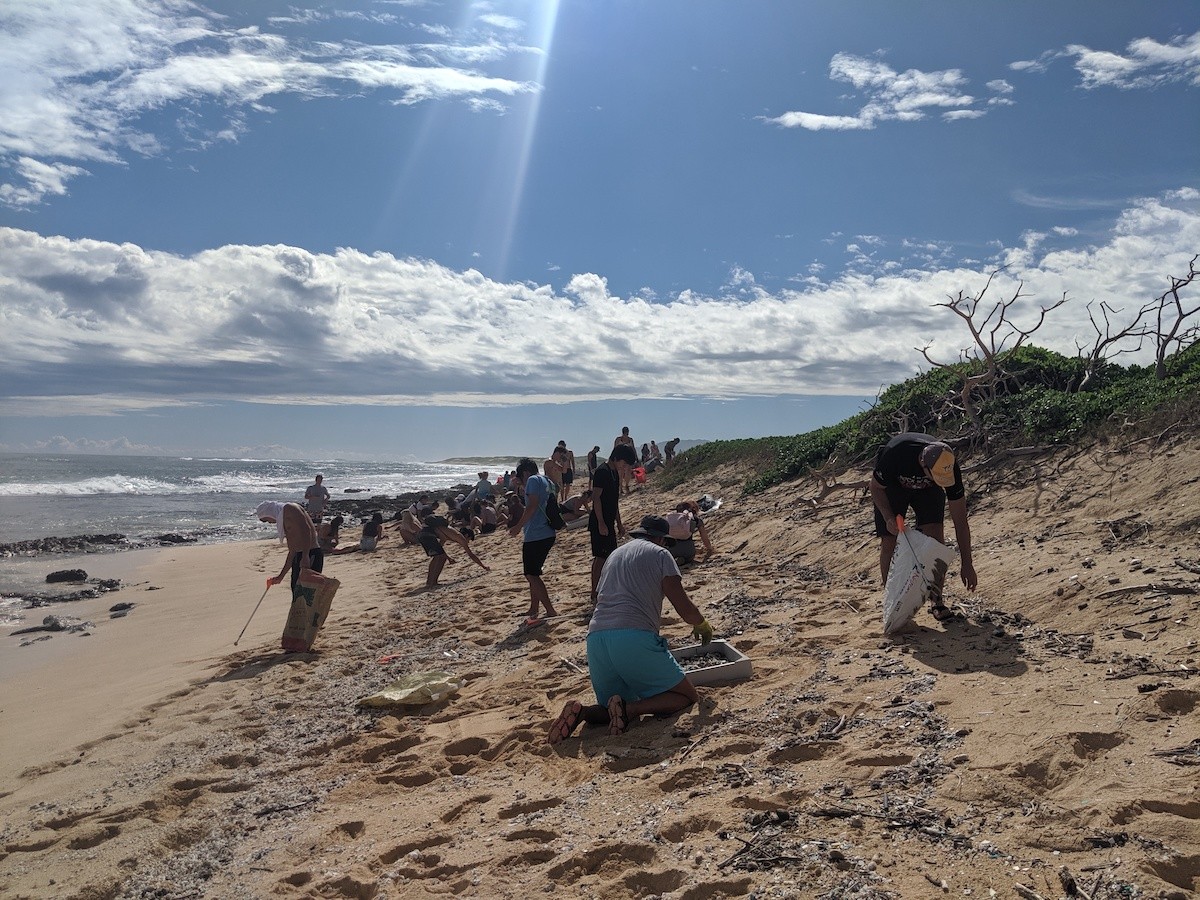

At Surfrider, we refer to beach cleanups as the gateway to activism. They’re a relatively easy and fun way to help tackle plastic pollution. The most direct impact they have is on removing plastic from the beach so it can no longer harm wildlife. However, if you’ve ever done more than one cleanup at the same beach, you know they aren’t a solution on their own. Cleanups have the potential to make an even greater and longer-lasting impact when we track our findings and analyze the data. This can be used to later direct campaigns aimed at reducing plastic from the source. Our goal is to no longer need beach cleanups in the first place, and data collection will help us get there. That’s why, with the support of our Better Beach Alliance partners, Surfrider launched a new Beach Cleanup tool in 2019 to better track the impact of our cleanups through itemized data collection.
Here are some ways beach cleanups have an impact beyond cleaning the beach:
- Removing “trash blindness” – Once you participate in enough cleanups, you’ll start to notice trash in the environment everywhere you go. Along your commute, at your local parks, outside of our office or school, even around your own home. Recognizing the problem is the first step in solving it!
- Raising awareness – The more people that attend a cleanup, the bigger spectacle it becomes! Beachgoers or people just passing by will take notice and are more likely to join along or attend a future cleanup event.
- Education for action – Often times Surfrider and other local nonprofits will host educational booths at the cleanup. These booths can provide additional information about plastic pollution, tips for reducing your personal impact, and other ways to get involved through campign work or our Ocean Friendly Restaurants program.
- Targeting top polluted items – As mentioned earlier, our new cleanup tool tracks not only the weight of the trash collected but the items found as well. This generates a “top ten” list for each cleanup which can be expanded regionally or nationally! This information can then be used to direct policy efforts and support active campaigns.
- Tracking success – Just as we can use the data to direct new policy efforts, we can also use the data to track the success of plastic bans. Often times plastic is carried by currents to different beaches, so the trash you find at your local beach may not have originated in your community. However, plastic bans often result in a decrease of those banned items found polluting community spaces and local waterways.
In 2019 alone, our network has conducted over 850 cleanups, engaged over 44,500 volunteers, and removed over 266,100 pounds of trash and recycling! Our list of top ten items collected nationally is pictured below.

View the new beach cleanup tool at cleanups.surfrider.org and email cleanups@surfrider.org with any questions.
While collecting itemized data is ideal, it can be easier said than done when dealing with microplastics. This is evident in areas like Hawaii where plastic has traveled a long way along currents and has been broken down by the waves, wind, and sun. For example, the Oahu chapter recently hosted a cleanup at the dirtiest beach in the world, Kahuku. Located in the James Campbell National Wildlife Refuge, this area is a protected habitat for seabirds. Not surprisingly, every bird that has been studied in the refuge has plastic in their gut. Overall, 200 volunteers removed around 500 pounds of trash from the beach over the course of a few hours.

It can be overwhelming to experience devastatingly polluted beaches like Kahuku, but by monitoring these beaches we can gain a better understanding of the problem and fuel motivation to implement lasting solutions. Special thanks to our Better Beach Alliance partner and co-founder, REEF, for their support in making Surfrider's new beach cleanup tool a reality!
Find a Surfrider chapter or student club near you to join their next beach cleanup event!
Learn more about the Better Beach Alliance here!
